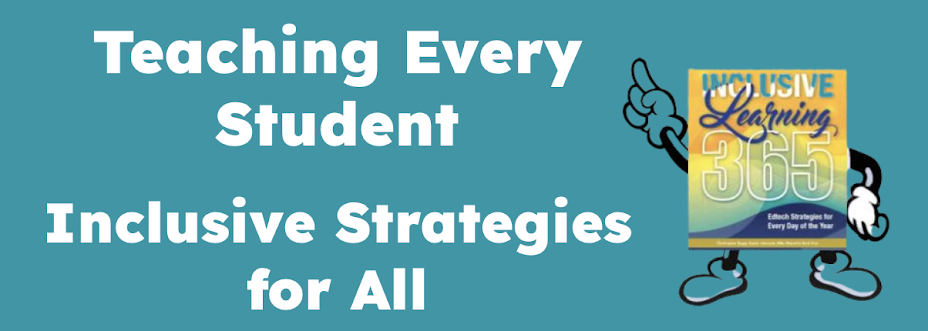I had another one of those conversations with a teacher the other day. You know the one, where they say the student just sat in front of the computer for 45 minutes and produced a five word sentence. The student is used to dictating to a scribe because output is an issue for him (legibility issues, organizational issues, etc.) He has been dictating to a scribe for five years now. The teacher wanted to help the student increase their output. But how?
How does this occur when a student has relied on a scribe for years? How do we move a student from dependence to independence? How do we help improve a student's output in the face of "learned helplessness?"
Suggested strategy:
1. Recognize that the way we improve our writing is to write. About anything. Preferably of interest.
2. Identify topics of interest to the student. Sit down with them and list everything that interests them - TV programs, music, movies, hobbies, things they text or IM about, clubs they belong to at school, what they do with their free time away from school, favorite anythings. (You get the drill).
3. Let the student decide the top three choices that are of interest to them. Rank them in order - 1, 2. 3.
4. Brainstorm writing ideas considering the top three areas of interest. Narratives are easiest to start with. But together come up with anything you can that will motivate your student(s) to write about their preferred topics. Tap into the reality that we learn best that which we enjoy (The Neuroscience of Joyful Education). Use various comic strip creator tools. Detail everything you can about the preferred topic to someone who is visiting from another planet and has no idea about what interests you, the student. The possibilities are endless.
5. Allow the student to use their preferred method of output - paper/pencil, word processor, speech recognition, even consider alternating with the "Power of Voice" - use sound recorders built into Word or Powerpoint, create a Podcast, use Jott, etc.
6. At this point, do not worry about the mechanics of the product. Just encourage and promote student success. And if you worry that this doesn't align with the curriculum frameworks, compare what the student produced independently before (a five word sentence in 45 minutes) to what they are producing today after you have decided to step back and allow your student to work with preferred subject material.
Other thoughts that have worked for you?

3 comments:
Incorporating digital images has been a powerful tool that I have seen help students. Very simply having an image in front of you does something that helps.
I do find my struggling writers seem to be able to create just fine when they choose the topic and the forum for presenting. My frustration is with the children who can talk a great writing piece, getting very excited and coming up with great ideas, but when asked to put it down on paper, turn all the great ideas into one little sentence. This always brings me back to scribing. Any suggestions other than recording and scribing? Or should the recording be enough? Hmmm.
I agree with Janowski's premise that in order to become better writers students have to write more. From my experience though relcutant writers suffer from two things: 1) the relevance of the task (expressive writing) is lost to them and 2) there are very few remedial writing-related activities that produce the "joy of writing" that generalize into spontaneous self-initiated writing. I think we have to begin with an understanding of why we (educators) want/need students to write. Just to beg the question, are we not living in an age where "writing" is becoming obsolete? I look forward to others' comments.
Post a Comment